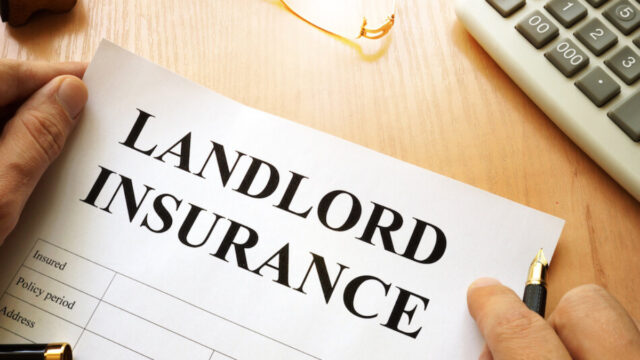
Owning rental property can be an exciting venture, offering not just a steady source of income but also the joys of entrepreneurship. However, along with the rewards come the risks—tenants who default on rent, unexpected maintenance, and even natural disasters.
This is where landlord insurance comes in, acting as a safety net to protect your investment. But is it just another bill? Let’s dive deep into what landlord insurance covers, why it might be essential, and how it stands as more than just an additional expense. Find the insurance you need at landlord insurance Ontario.
Landlord Insurance

At its core, landlord insurance protects property owners from financial losses connected to rental properties. This type of insurance typically covers the building itself, any personal property used to maintain the rental property, and liability in case someone is injured on the property and the owner is found responsible.
Unlike homeowner’s insurance, landlord insurance is designed to address the unique risks faced by property owners who rent their properties out to others. It usually includes three main types of coverage: property damage, liability insurance, and loss of income. Property damage covers events like fires, storms, and vandalism. Liability insurance protects you in case a tenant or visitor suffers an injury due to property maintenance issues. Lastly, loss of income coverage helps compensate for lost rent payments if the property becomes uninhabitable due to covered perils.
Why Landlord Insurance Matters
Imagine a scenario where a fire breaks out at your rental property due to faulty wiring. The building is badly damaged and needs extensive repairs, rendering it uninhabitable. Without landlord insurance, not only would you be responsible for all repair costs, but you would also lose income during the period the property is vacant. With adequate coverage, however, you could have the repair costs covered and receive compensation for lost rent.
Beyond physical damage, liability protection is a significant aspect of landlord insurance. If a tenant or visitor were to sue you after getting injured on your property, the liability coverage in your landlord insurance could help cover legal expenses and any resulting judgments. This protection is critical, given the litigious nature of our society.
Costs and Considerations

The cost of landlord insurance typically ranges from about 15% to 25% more than a standard homeowner’s insurance policy, primarily due to the comprehensive coverage it offers. Factors influencing the cost include the property’s location, size, age, the type of rental property, the length of rental terms, and the level of coverage selected.
When choosing a policy, it’s crucial to consider not just the premium costs but also the deductibles and policy limits. A higher deductible might lower your premiums, but it also means more out-of-pocket expenses when you file a claim. Similarly, higher limits can provide more substantial protection but at a higher cost.
The Debate: Safety Net or Unnecessary Expense?
There’s no one-size-fits-all answer to whether landlord insurance is indispensable or an unnecessary overhead. For those who own multiple rental properties or have invested in high-value properties, the insurance acts as a vital safety net, safeguarding significant financial investment against unforeseen events. However, for a landlord renting out a small property or a part of their home, the additional cost might seem like a burden, especially if the likelihood of filing a claim is low.
Real-Life Examples of Landlord Insurance at Work

Consider the story of a landlord whose rental property was damaged by a hurricane. The roof was destroyed, and the ensuing water damage made the home unlivable. Thanks to their landlord insurance, they were able to repair the roof, fix the water damage, and cover the property’s lost rental income during the repairs. Without insurance, the landlord would have faced not only substantial repair costs but also the loss of income, which could have jeopardized their financial stability.
Another example is a landlord who faced a lawsuit when a tenant slipped and fell due to a broken step. The liability portion of their landlord insurance covered the legal fees and the settlement amount, protecting the landlord from what could have been a financially devastating judgment.
Making the Decision: Is It Right for You?
Deciding whether to invest in landlord insurance comes down to a simple risk assessment. How much financial risk are you willing to accept? What’s the potential cost of damages or liability compared to the insurance premium?
If you own valuable property or multiple properties, the answer may lean heavily towards getting insurance. However, if your risk exposure is minimal, you might opt for a more basic policy or forego it altogether, assuming a greater share of the risk yourself.
Navigating Policy Options: Finding the Right Fit

Choosing the right landlord insurance policy involves more than comparing prices; it requires a detailed understanding of what each policy covers. Most insurance providers offer customizable plans that allow property owners to tailor their coverage to specific needs. For instance, if your rental property includes a swimming pool, you might want additional liability coverage due to the increased risk of injury.
It’s also vital to understand what is not covered by a standard landlord insurance policy. Common exclusions include floods, earthquakes, and normal wear and tear. For these types of risks, you might need to purchase additional riders or separate policies, especially if your property is located in areas prone to these issues.
Furthermore, some insurers offer optional coverages that can be invaluable depending on your circumstances. For example, legal protection coverage can help cover the cost of legal advice and representation in disputes with tenants. Another useful add-on is emergency coverage, which pays out if you need to make urgent repairs to prevent further damage to the property or to ensure tenant safety.
The Impact of Good Insurance on Tenant Relationships
Having comprehensive landlord insurance indirectly benefits your relationships with tenants. By ensuring that you can quickly and effectively address any property damage or liability issues, you demonstrate reliability and professionalism. This can enhance your reputation as a landlord and can lead to longer tenant retention and fewer disputes. Satisfied tenants are more likely to take care of the property and comply with their lease obligations, which in turn reduces your costs and hassle over time.
In an ideal scenario, tenants never face issues like leaks, mold, or structural damages that aren’t swiftly handled. Effective coverage ensures that you have the financial backing to address these problems without cutting corners, which not only keeps your tenants happy but also preserves the value of your property.









